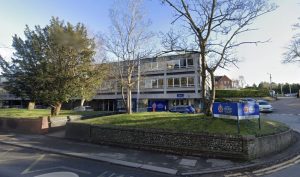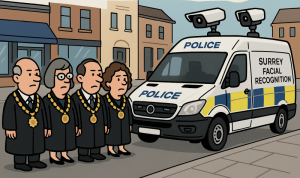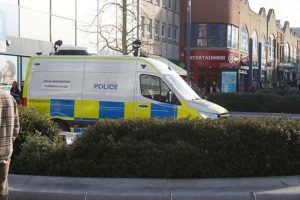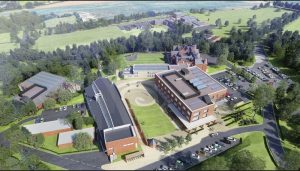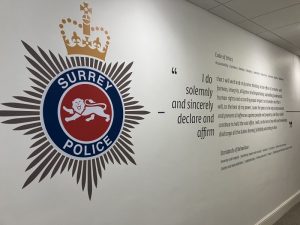Surrey Police’s near two-year hunt for a replacement to its shut, dangerous, crumbly concrete riddled Reigate station is over – with people only needing to walk travel miles to the new one. The new base for the Reigate and Banstead area will give the force a permanent presence and front counter for the public, the Police and Crime Commissioner (PCC) said after securing a building at Perrywood Business Park in Honeycrock Lane in Salfords. It comes after the 2023 closure of its Reigate Station that left officers and staff stationed in Mole Valley and Caterham Police Station.
Commissioner Lisa Townsend hailed the purchase as great for policing presence in East Surrey and follows what she described as an extensive search in the Reigate and Banstead area. The new building was considered to be the only suitable site in the area and will be funded by selling Reigate Police Station. This station will run alongside the force’s new eastern division headquarters in Leatherhead, which was granted planning permission earlier this year. The PCC and senior officers wanted to find a secondary site in the Reigate and Banstead area specifically for a police station and front counter service for residents.
Surrey Police maintain a counter service during office hours in the Town Hall, The Parade. Epsom.
The Perrywood Business Park keeps the trend of police sites in industrial sites and will be just a three minute drive from the Surrey Custody Centre in Salbrook Road. Lisa Townsend said: “I know how much residents value their local policing presence so this is really fantastic news for our communities in the area. The discovery of RAAC and subsequent closure of Reigate Police Station has meant it has been a disruptive time for our hard-working teams in East Surrey. I want to pay tribute to their continued patience, professionalism and resilience in challenging circumstances. The search for a site in the Reigate and Banstead area has been extensive and Perrywood was the only building which met our needs so I am delighted that we have been able to secure the purchase. I believe that together with the progress being made on our new Eastern Division HQ in Leatherhead, this heralds a bright future for policing in East Surrey.”
Deputy Chief Constable of Surrey Police Mark McEwan said: “We believe this new building will provide sufficient space and facilities for our teams, be fit for purpose and enable us to continue delivering the high levels of service our residents expect. Whilst we are still at the very early stages, considerations continue into where individual teams across the Eastern division will be based in the future and we will provide updates as and when we have them. The safety of our communities remains our priority and there will be no change to officers.”
Reigate Police Station (Image Google)
Related reports:
Reigate Police Station closes with a concrete problem


